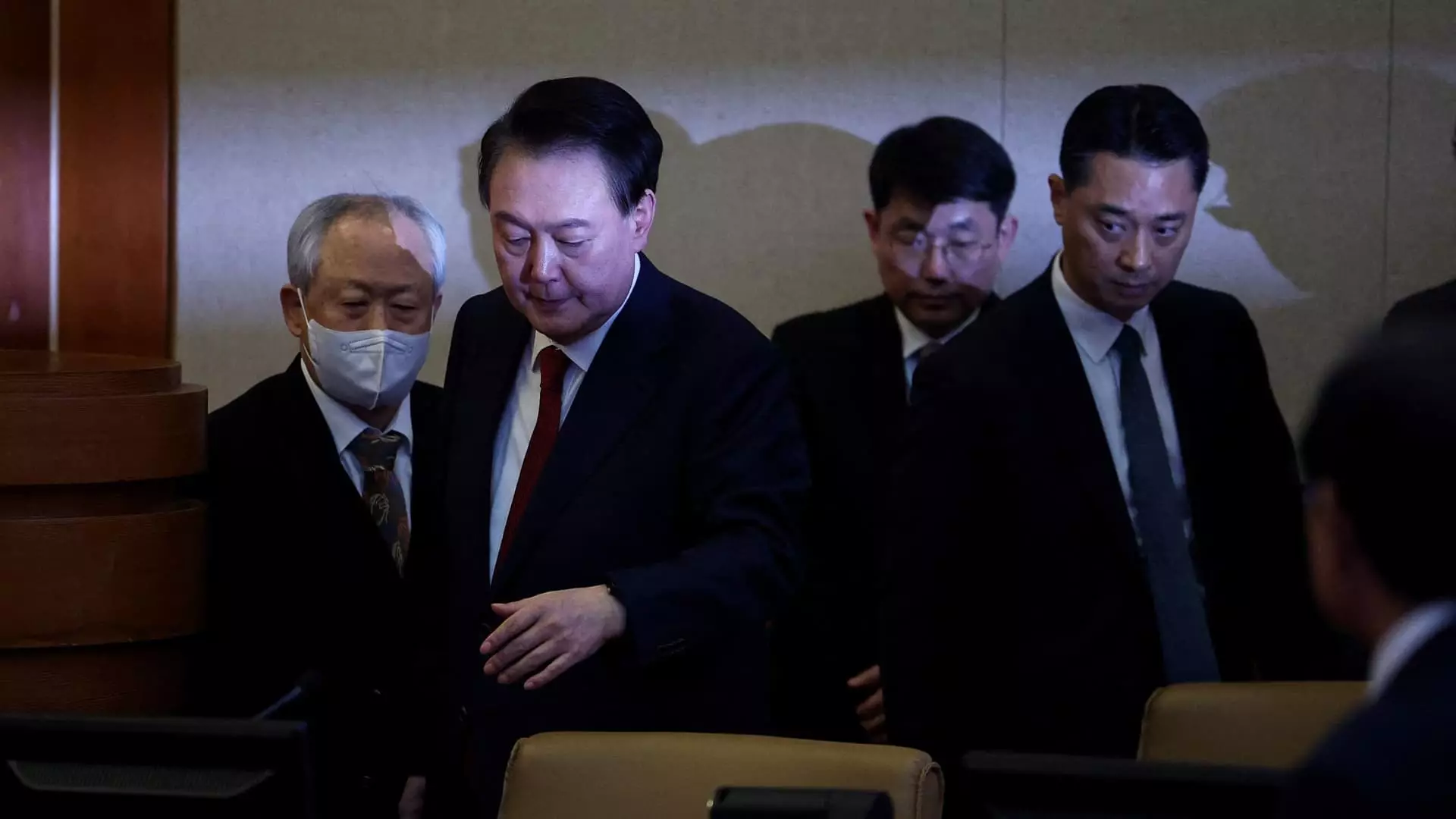The recent decision by South Korea’s Constitutional Court to uphold the impeachment of President Yoon Suk Yeol marks a critical moment in the nation’s democratic fabric. This event is not merely a shifting of power; it is an indictment of authoritarian impulses that, despite being on the fringes of power for decades, have now reared their ugly head in the form of a leader desperate to cling to control. With the clock ticking on a mandatory election within 60 days, South Koreans find themselves standing at a crossroads, grappling with the implications of this decision far beyond the political arena.
The Unanimous Verdict
The court’s unanimous ruling reflects a strong stance on democratic principles, indicating that the checks and balances of government still hold weight in South Korea. Acting Chief Justice Moon Hyung-bae’s assertion that the declaration of martial law lacked the necessary legal grounding serves as a crucial reminder: no leader is above the law. Yoon’s late-night broadcast, wherein he declared martial law citing threats from “North Korean communist forces” and “anti-state forces,” portrayed a chilling narrative that could have easily spiraled into a full-fledged authoritarian regime. The audacity to wield such extreme measures reveals a troubling disregard for democratic norms.
Market Reactions and Political Ramifications
The aftermath of Yoon’s impeachment was swiftly felt on the financial market, showcasing the delicate interconnectedness between politics and economics. The Kospi index slipped while the Kosdaq managed a slight uptick, indicating investor wariness and a cautious optimism among smaller-cap stocks. The slight strengthening of the South Korean won also reflects a complex sentiment in the market; while uncertainty looms, the prospect of fresh leadership may be seen by some as a potential panacea for economic stagnation. However, it is critical to question: can a nation thrive when it finds itself under the shadow of previous authoritarian attempts?
Public Sentiment: A Call for Accountability
Public sentiment around the impeachment is a mix of relief and frustration. Many citizens welcomed this decisive action as a necessary check on a leader who overstepped his constitutional boundaries, but the broader implications of this political turmoil cannot be ignored. The impeachment has ignited fierce debates about the direction of South Korean politics and has led many to demand stronger accountability from their leaders. The specter of martial law remains a haunting reminder that power can corrupt, and it is evident that the populace is not willing to tolerate such overreach any longer.
The Path Forward
As Prime Minister Han Duck-soo steps into the role of acting president, the nation looks ahead. The upcoming election poses a challenge and an opportunity, necessitating a thorough examination of candidates who prioritize democratic tenets and human rights over power plays. This situation offers a profound moment for national introspection, as it compels voters to question what kind of leadership they truly desire—one that echoes authoritarian themes, or a governance rooted firmly in democratic ideals. The need for vigilance and civic engagement has never been more pronounced, as South Korea seeks to heal and thrive in a post-Yoon era.


Leave a Reply